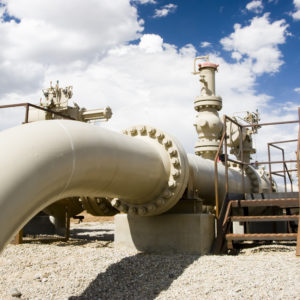While energy companies complain government environmental policies make it harder to build crude oil and natural gas pipelines to areas that need more supply, a fight in Texas shows part of the problem comes from the industry itself.
The pipeline company Converge Midstream, LLC has filed a lawsuit accusing Magellan Midstream, another pipeline company, of “ongoing anti-competitive practices” that Converge says are contributing to higher energy costs for U.S. consumers.
“For years we have tried to work with Magellan and for years Magellan has continued to build a monopolistic enterprise, ignoring common carrier laws, protecting and serving its company-owned export facility at the expense of others, and illegally devaluing crude oil that leaves its pipeline system,” Dana Grams, CEO of Converge, said in a press release. “It’s time for an end to those abusive practices.”
Converge alleges Magellan has “systematically shut out or impeded” not only Converge’s operations but operations of other companies in the Houston area.
“This type of market manipulation is, as alleged in detail in the suit, prevalent in the Houston area as other common carrier pipelines use these same tactics to block Converge and other market participants and their customers from gaining access to these markets,” Converge said.
Magellan, a publicly traded partnership, owns the longest refined petroleum products pipeline system in the country, with access to nearly 50 percent of the nation’s refining capacity. It can store more than 100 million barrels of petroleum products such as gasoline, diesel fuel, and crude oil.
A company spokesperson told InsideSources the lawsuit had no merit.
“We plan to aggressively defend against the allegations and pursue all available remedies of our own, including counterclaims,” said Bruce Heine, Magellan’s Vice President of Government and Media Affairs.
Grams says not only is Magellan’s conduct “illegal,” but it also stifles competition, increases costs to crude oil shippers and markets, and raises the cost of gasoline and other refined products for hardworking people across the country.
“This, at a time when American businesses and families are already struggling with higher energy prices and surging inflation,” said Grams.
U.S. gasoline prices hit a new record high of $4.40/gallon on Wednesday. That was up 21 cents in the last week, and 38 cents over the previous month.
Attorney Benjamin L. Bailey of Bailey & Glasser, LLP, the law firm representing Converge, says it is on the right side of the facts and the law.
“Nobody wanted this dispute to go this far, but Magellan’s ongoing and continuing unwillingness to act in good faith and against the law left Converge with only one option – to challenge Magellan’s actions in court,” says Bailey.
The lawsuit filed in Harris County, Texas is known as Converge Midstream Partners, LLC v. Magellan Crude Oil Pipeline Company, L.P. and Magellan Midstream Partners, L.P.
Texans are watching the situation closely.
“Depending on the outcome of the case, it could have a significant impact on Magellan’s revenue and on the way midstream companies like them operate in Texas,” says TexasInsider.org.
“Over time, Magellan has aggressively acquired existing pipelines to build the Houston Crude Oil Distribution System, giving it control of ‘the last mile’ of distribution – where the crude oil barrels reach end-users and export facilities,” Converge said in a statement. “The suit alleges that the company leverages its dominant position to keep other companies out of the market through unfair practices ensuring that new competition cannot effectively enter the market to provide services benefiting American consumers.”
Pointing to Texas state law, the company says pipeline companies like Magellan are common carriers, something Converge views as a status that provides it the power of eminent domain to gain right-of-way on private property.
“Along with this privilege, Texas law requires common carriers like Magellan to make their pipelines broadly available to market participants for the public good.”
It’s not just oil and gasoline prices impacted by pipeline backlogs. High-profile industry leaders like Toby Rice of EQT Corp., the nation’s largest natural gas producer, have pointed to limited pipeline availability as a primary contributor to higher home heating, particularly in underserved regions like New England.
Noting natural gas prices are sometimes eight times higher in the northeast than in Appalachia, Rice wrote to anti-pipeline members of the U.S. Senate, “The problem is very straightforward. The pipelines heading to New England are full, and as a result, we cannot physically flow that gas needed to meet growing demand without more infrastructure. That’s it. And the way to solve this problem is equally straightforward: allow the completion of pipeline projects.”

